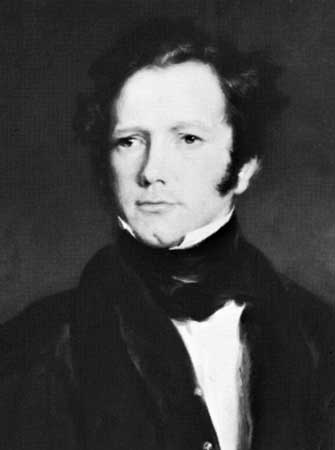There’s something about pirates that invariably ignites the imagination. The swashbuckling hero-villains, with their high seas adventure and seemingly lawless existence, have been immortalized in popular culture through the ages. Thanks to captivating performances like Johnny Depp’s charismatic Captain Jack Sparrow and Robert Newton’s classic portrayal of Long John Silver, the pirate’s archetypal character continues to intrigue and entertain audiences. Indeed, Newton’s distinctive portrayal of the one-legged pirate even set the standard for the quintessential “pirate voice” that inevitably springs to mind anytime someone utters the word “booty.”
Yet, while these reel-life pirates might be steeped in the popular imagination, it’s worth remembering that their real-life counterparts played a significant role in maritime history. These authentic pirates navigated the high seas in a world far removed from the silver screen, one brimming with adventure, peril, and a language uniquely their own. This brings us to an interesting question — is the famous pirate catchphrase “shiver me timbers,” so often associated with these seafaring rogues, a genuine relic from their vibrant lexicon, or merely a fanciful Hollywood creation? Delving into the historical archives and linguistic records, we set out to determine whether “shiver me timbers” would have been genuinely uttered aboard the pirate ships of yore.
“Shiver me timbers” pre-Hollywood

A fascinating journey through the annals of literary history brings us to the earliest known usage of the phrase “shiver me timbers,” taking us back to the pages of an 1834 book titled Jacob Faithful. This intriguing tale was penned by one Captain Frederick Marryat, a man who was no stranger to the sea’s alluring call. Born in 1792, Marryat was so enthralled by the ocean’s lure that he made multiple attempts to escape to its captivating depths. His persistence was rewarded at the tender age of 14 when he was finally accepted into the ranks of the Royal Navy. His tenure with the Navy spanned a commendable 25 years before he traded his naval commission for the quieter, though no less challenging, life of a novelist—a career that would bring him into the illustrious company of literary giants such as Charles Dickens.
Given his extensive naval experience, it’s reasonable to presume that Captain Marryat possessed a fair understanding of pirate vernacular. In Jacob Faithful, he introduces the phrase “shiver me timbers” in a line of dialogue, firmly establishing its association with the maritime world: “I won’t thrash you, Tom. Shiver me timbers if I do!”
The phrase enjoyed a renaissance in 1883 with the publication of Robert Louis Stevenson’s perennial classic, Treasure Island. Here, the saying “shiver me timbers” finds new life, embellished with flavorful variations like “shake up your timbers” and “shiver my sides,” further ingraining its place in the pirate lexicon.
This intriguing overlap of fiction and reality, where authors and actors find common ground, begs the question — might there be a kernel of historical truth in the widely held belief that pirates indeed voiced the exclamation “shiver me timbers”? This unusual alliance between scribes and thespians fuels our exploration, prompting us to delve deeper into the potential validity of this enduring pirate trope.
But what does “shiver me timbers” mean?
Unraveling the origins of slang is akin to navigating a thick fog, where certainty is frequently elusive and definitive answers are often just out of reach. This is entirely understandable, and perhaps relatable. Take a moment to recall the slang you employed during your early school days. Once you’ve pushed past the inevitable wave of embarrassment associated with these linguistic memories, imagine the daunting task of tracing the roots of similar idiomatic expressions several centuries after they were first spoken.
You might uncover some fragmentary clues, but if you were to somehow transport back in time to validate your findings, the odds are that your attempts to blend in linguistically would be as awkward and out of place as the wholesome crooner Pat Boone covering Alice Cooper’s hard-rock hit “No More Mr. Nice Guy” (which, to the astonishment of many, actually did happen, and for the sake of your eardrums, we advise against seeking it out online).
But let’s return to the task at hand: dissecting the phrase “shiver me timbers.” We can glean some insight from the venerable Oxford English Dictionary, a respected authority on words and their meanings. The OED defines “shiver” as “to break into small fragments or splinters,” providing us with a vivid image of something being shattered or ruptured.
And what of “timbers”? This term, according to the same dictionary, signifies “a wooden beam or board used in building a house, ship, or other structure.” Considering the seafaring context of our discussion, it’s safe to assume this specifically refers to the wooden components of a ship.
Pairing these definitions together, we start to see the phrase “shiver me timbers” in a new light. It suggests a force or surprise so intense that it could theoretically fragment the ship itself. Yet, there’s more to this colorful phrase, a linguistic gem born from the high seas and storied past of maritime lore. Let’s sail further into its intriguing etymology.
Would a Royal Navy officer make this up?
The image of a pirate invoking “shiver me timbers” to describe the fragmentation of a ship’s body—whether at the mercy of monstrous waves, a thunderous cannonball, or a wildly impractical contraption from the imagination of Discworld’s beloved and bewildering inventor, Bloody Stupid Johnson—feels instinctively plausible. While we may not be able to claim with absolute certainty that this colorful phrase was a bona fide part of the pirate vernacular, we can comfortably assert that it is highly improbable that a seasoned Royal Naval officer such as Captain Marryat would fabricate such a detail.
There would be no need for him to resort to literary invention; Marryat had an impressive quarter-century’s worth of nautical experiences to mine for his narratives. Only if the authentic jargon of the time were too coarse or vulgar for polite society—and it must be conceded that “shiver me timbers” may not be the first utterance to spring from a sailor’s lips in the wake of a cannon’s blast—would he need to resort to creating a more palatable substitute. Nevertheless, the phrase carries an unmistakable air of authenticity that resonates with its maritime roots.
To sum up, while the playful assertion that the “pirate alphabet” consists of a mere ten letters (namely, I, I, R, and the seven C’s) strays into the realm of light-hearted folklore, the phrase “shiver me timbers” very likely springs from a genuine historical wellspring. So, as you delve into the world of pirates, real or fictional, feel free to exclaim it with gusto, knowing you’re channeling a phrase steeped in the rich tapestry of seafaring history.


